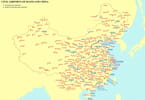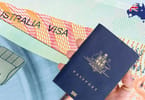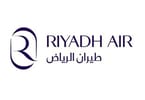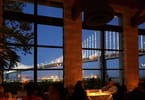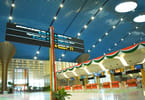In the southern hemisphere people are getting ready for their summer holidays and in the northern hemisphere the religious holiday season is a time of celebration, of festivities, of travel and many people begin to think of a winter break, especially where the winters are long and cold.
No matter which type of vacation a person is considering in this often violent and pandemic-prone world a question that every potential visitor asks is: Is your location safe and secure? Although it is rare for a person to choose a destination merely because of issues of tourism surety (where safety and security meet) a lack of good tourism surety may well be the reason that potential clients choose to go elsewhere.
In today’s world our clients and customers demand safety and security by well-trained professionals. The hospitality industry’s number one job is to protect its guests. If it fails in this regard, all else becomes irrelevant. Real security involves training, education, investments in software and the understanding that security is not a simplistic discipline. Tourism security personnel need continual training and must be flexible enough to adjust their procedure to a constantly changing environment. One of the propositions to note is that as customer service increases, so does tourism security. Security plus service and value for money will become the basis for 21st century tourism success!
Ranking agencies often rank locales by safety and security. The problem is that these rankings are dependent on which components are included and which are left out of the ranking equation.
In order to help you decide the accuracy of ranking and to help your organization improve in its ranking consider the following.
-Provide accurate data and cite your sources. Too many times tourism offices are accused of simply creating data or cherry-picking only what they believe to be positive data. Be honest in your data and make sure that your data come from reliable and accurate sources such as the United States State Department, the United Nations, the United Kingdom’s Foreign Office or an official United Nations agency.
-Explain your سفري حفاظت اشارو. Which factors went into the index? For example do you take into account assaults or other violent actions against tourists? How do you distinguish violent actions in which the tourist is simply collateral damage versus actual attacks on visitors?
-Define who is in your visitor “population.” The numbers will change by whom you include or exclude in your data. Is a local visitor counted as someone from another country? Does a visitor have to be in your community for a minimum period of time or do you also count day-trippers? How you determine your population universe will impact your results.
-Be inclusive in how you define safety and security. In this post covid world illnesses can be as deadly as any form of violence. Consider not only homicides and assaults but also road deaths due to accidents, poor hygiene, and deaths or injuries to visitors due to natural disasters. How prepared is your tourism industry to care for a visitor during a natural disaster such as a flood or hurricane? What is your locale’s policy in case a visitor needs hospitalization? The Covid pandemic is a good example of how visitors suddenly were stuck in a foreign locale due to infection and being unable to return home. Have you updated your policies since Covid?
-Distinguish between acts of terror and random acts of criminal violence. In most cases crime and violence are two separate issues and your data should demonstrate this. Also distinguish between attacks against the local population and attacks against the tourist population or tourism infrastructure. Such clear and precise data allows a visitor to “measure” his or her potential for harm due to unforeseen circumstances.
-Know and list how quickly a visitor can have access to medical services. Not all dangers are intentional. There is also the possibility of poisoning, illness or death due to poor hygiene or food poisoning. These are real tourism issues and when they occur, how easily can a visitor obtain medical help? Do your medical personnel speak more than one language? Do your hospitals accept foreign health insurance? These factors can be as important in determining the safety of a locale as are crime figures.
-How well does your community maintain its infrastructure? For example, are your hiking paths or sidewalks safe? What are the conditions of your beaches and aquatic venues? Do your beaches have lifeguards and are ocean and lake conditions clearly marked? What are the rules regarding loose animals? A dog bite in a foreign land can be traumatic.
-Consider more than crime and acts of terrorism. Good Tourism “surety” (the combination of safety, security, economics, health, and reputation) means having risk management with well prepared and trained personnel. Take into account how you handle public health and how much you invest in risk management.
Safety and security then is much more than merely physical assaults and any of the above factors can determine if a vacation becomes a nightmare or a memory to cherish forever. Remember that determining a safe travel destination is an educated guess. Tragedies can occur anywhere, and you can go to a less safe destination and nothing might occur. The trick is never to confuse good luck for good planning.
ليکڪ، ڊاڪٽر پيٽر اي ٽارلو، صدر ۽ گڏيل باني آهي World Tourism Network ۽ اڳواڻي ڪري ٿو محفوظ سياحت پروگرام.







